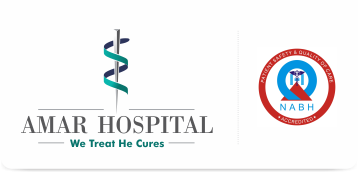Understanding the difference between heart failure vs. heart attack is crucial for anyone looking to maintain a healthy heart. Both conditions affect the heart, but they are distinct in their causes, symptoms, and treatments. This blog aims to clarify the differences and explain how a heart attack can lead to heart failure.
What is Heart Failure?
Definition of Heart Failure
This condition can develop over time due to various factors, including high blood pressure, diabetes, and coronary artery disease.
Also Read: The Role of Physiotherapy in Post-Surgical Recovery: Physiotherapy in Patiala
Symptoms of Heart Failure
Symptoms of heart failure include:
- Shortness of breath
- Persistent coughing or wheezing
- Swelling in the legs, ankles, and feet
- Fatigue and weakness
- Rapid or irregular heartbeat
Causes of Heart Failure
Heart failure is often caused by:
- Coronary artery disease
- High blood pressure
- Heart attacks
- Diabetes
- Certain medications and diseases
What is a Heart Attack?
Definition of a Heart Attack
A heart attack, also known as a myocardial infarction, happens when the blood flow to a part of the heart is blocked, typically by a blood clot. This blockage can cause damage to the heart muscle if not treated quickly.
Symptoms of a Heart Attack
Symptoms of a heart attack include:
- Chest pain or discomfort
- Pain in the arms, neck, jaw, or back
- Shortness of breath
- Nausea, indigestion, or abdominal pain
- Cold sweat and lightheadedness
Causes of a Heart Attack
A heart attack is primarily caused by:
- Blockage in one or more coronary arteries
- Coronary artery spasm
- Plaque rupture leading to blood clot formation
Heart Failure vs. Heart Attack: Key Differences
Causes
The primary difference between heart failure vs. heart attack lies in their causes. Heart failure is usually a result of long-term conditions that weaken the heart, such as high blood pressure or diabetes. In contrast, a heart attack is typically caused by a sudden blockage in the coronary arteries.
Symptoms
While both conditions share some symptoms like shortness of breath, they also have distinct signs. Heart failure often presents with chronic symptoms such as persistent coughing and swelling in the lower extremities. A heart attack, however, usually has acute symptoms like intense chest pain and cold sweats.
Onset
Heart failure develops gradually, with symptoms worsening over time as the heart becomes less effective at pumping blood. A heart attack occurs suddenly and requires immediate medical attention to restore blood flow to the heart muscle.
Treatment
The treatment approaches for heart failure vs. heart attack also differ. Managing heart failure involves lifestyle changes, medications, and sometimes surgical interventions like heart transplants. Treating a heart attack often requires emergency procedures such as angioplasty or the use of clot-busting drugs to restore blood flow.
Can a Heart Attack Turn into Heart Failure?
Yes, a heart attack can lead to heart failure. When a heart attack damages the heart muscle, it can weaken the heart’s ability to pump blood effectively. Over time, this damage can lead to chronic heart failure. The risk increases if the heart attack is severe or if multiple heart attacks occur.
Prevention and Management
Preventing Heart Failure
To prevent heart failure:
- Control high blood pressure and diabetes
- Maintain a healthy weight
- Eat a balanced diet
- Exercise regularly
- Avoid smoking and excessive alcohol consumption
Preventing Heart Attack
To prevent a heart attack:
- Manage cholesterol levels
- Control high blood pressure
- Maintain a healthy diet and weight
- Exercise regularly
- Avoid smoking and manage stress
Managing Heart Conditions
Proper management of heart conditions involves regular check-ups, adhering to treatment plans, and making necessary lifestyle adjustments. Medications, surgical interventions, and lifestyle changes play crucial roles in managing both heart failure and heart attack.
Early Detection and Diagnosis
Early detection is vital in managing both heart failure and heart attack. Regular medical check-ups, especially for individuals with risk factors like hypertension, diabetes, or a family history of heart disease, can help detect early signs of heart problems. Diagnostic tests such as electrocardiograms (EKGs), echocardiograms, and stress tests are essential tools that doctors use to evaluate heart health. Identifying heart issues early allows for prompt intervention, which can significantly improve outcomes and prevent complications.
Lifestyle Modifications for Heart Health
Adopting a heart-healthy lifestyle is crucial in preventing and managing heart failure and heart attacks. This includes following a balanced diet rich in fruits, vegetables, whole grains, and lean proteins while limiting saturated fats, sodium, and sugars. Regular physical activity, such as walking, swimming, or cycling, helps maintain a healthy weight, lowers blood pressure, and improves overall cardiovascular health. Additionally, avoiding smoking and managing stress through mindfulness techniques or therapy can significantly reduce the risk of heart disease.
The Role of Medications
Medications play a critical role in treating both heart failure and heart attacks. For heart failure, medications like ACE inhibitors, beta-blockers, and diuretics help improve heart function and manage symptoms. In the case of a heart attack, immediate treatment may include aspirin to reduce blood clotting, thrombolytics to dissolve clots, and nitroglycerin to relieve chest pain. Long-term management often involves medications to control blood pressure, cholesterol, and prevent further clotting. Adherence to prescribed medication regimens is essential for preventing disease progression and improving quality of life.
Conclusion
Understanding the difference between heart failure vs. heart attack helps in recognizing symptoms, seeking timely medical help, and taking preventive measures. Both conditions are serious and require proper medical attention and lifestyle changes to manage effectively.
For those seeking the best care and services, Amar Hospital is a leading provider of top-notch cardiac care. With a team of experienced cardiologists and state-of-the-art facilities, Amar Hospital ensures that patients receive comprehensive and compassionate care for all heart-related conditions.


